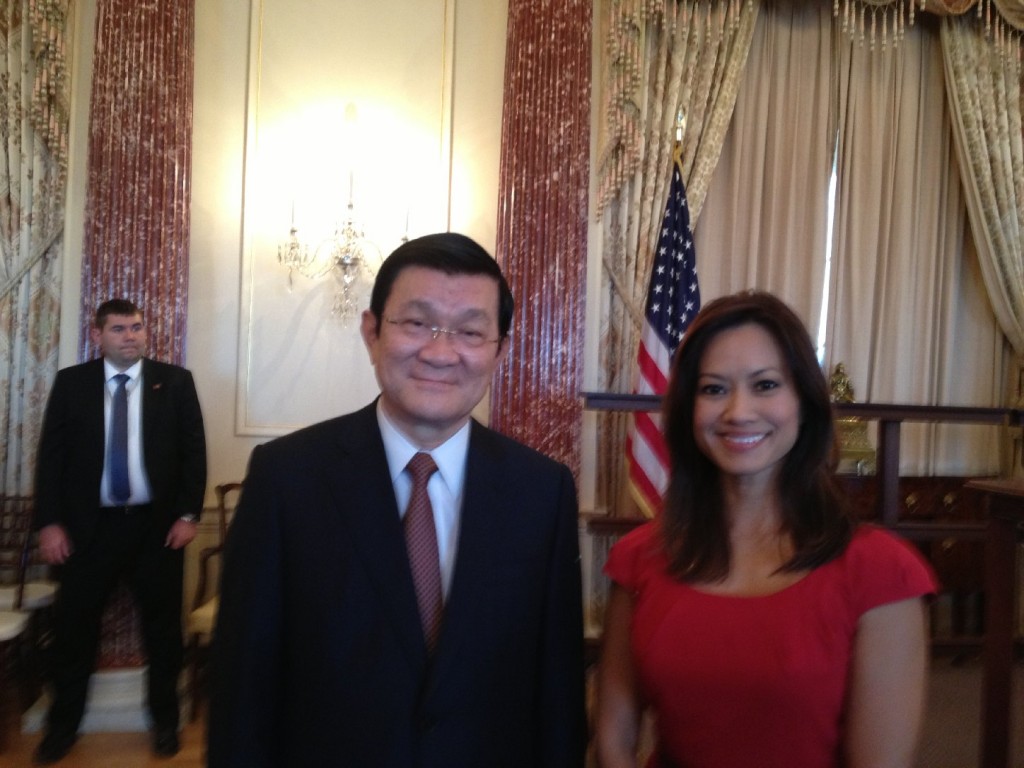
By Thuy Vu
KQED News is launching a new multiplatform service in October called KQED Newsroom on television, radio and online, with three–time Emmy Award–winning journalist and anchor Thuy Vu as host. This is her first blog post for News Fix.
In a rare trip, Vietnamese President Truong Tan Sang is meeting with President Barack Obama at the White House today. The Obama administration is seeking to strengthen security and trade ties with Vietnam as part of its effort to deepen relations with Southeast Asia. Truong’s trip to the United States is only the second visit by a Vietnamese president since the two countries resumed relations in 1995.
Yesterday, I had the privilege of attending a luncheon in Washington, D.C., hosted by Secretary of State John Kerry in honor of President Truong. In 1975, I fled Vietnam with my family as Saigon was falling to the communists, so I came not only as a journalist but as someone intimately affected by the war.
As the two men stood on stage, the symbolism was undeniable. Kerry is a Vietnam veteran. Truong is a former Communist Party chief who was jailed by the U.S.-backed South Vietnamese government in the early 1970’s. On Wednesday, the former foes stood side by side as political allies in the campaign to rebalance power in Asia amid China’s growing dominance. It was a portrait of reconciliation as Kerry thanked Vietnam for its help in finding the remains of U.S. servicemen and praised its pledge to assist U.N. peacekeeping efforts in 2014. The two countries have gone “from conflict to friendship,” Kerry said.
